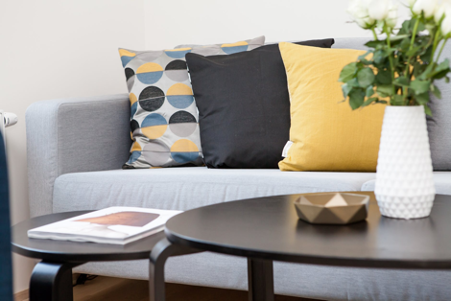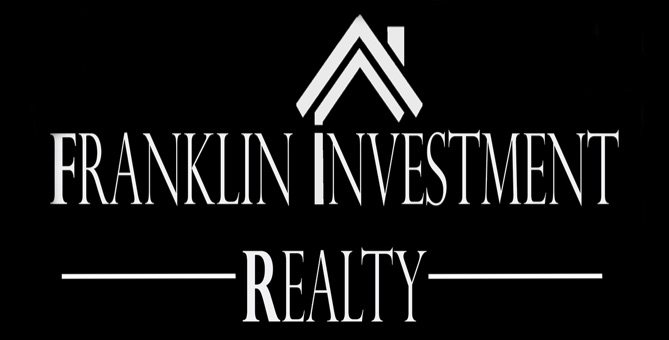First-Time House-Flipping How-Tos for Seniors

Have you considered starting a house-flipping business? As a senior with time and the motivation to work hard, it can be a good idea to go into the house-flipping industry. This is one of the businesses that give you the opportunity to get exercise while making some money. Here is an outline the things you should consider that will help you get started with flipping houses. Consider Financing To acquire the first house to flip, you need money. There are costs involved when buying a house to flip, including renovations and marketing. The money you need to renovate the house depends on market conditions and you should also consider utilities, taxes, and insurance while working on it. The Mortgage Reports notes that one of the options is getting a loan, which can be difficult sometimes as banks consider first-time flippers risky borrowers. Once you get several houses under your belt, you’ll raise your profile and find it easier to get approved for credit. Use Software to Your Advantage As a property flipper, you’re now running your own business, which calls for utilizing technology to help with areas like marketing. Your logo, for example, will be on your business cards, your letterhead, your website, and all your social media accounts. The challenge with designing an eye-catching logo is that the combination of graphics and text must convey your values and your messaging, but you don’t have to spend a fortune on a graphic designer to get this done. You can go online and make a logo for free today using one of thousands of professionally designed logo templates that you can customize to your liking. SimplyShowing points out that there will likely be pros that you’ll use for repairs and upgrades that you either aren’t equipped to do yourself or don’t have the time to complete. You may also employ a property manager to handle ongoing maintenance like lawncare and appliance upkeep. In any of these cases, your best bet is to check out payroll software that is robust enough to handle timely distribution of paychecks, as well as tracking labor expenses per project. Look for a platform that will generate W-2s and direct deposit. How to Find the Ideal Property Not every house out there is a good investment. Buying a house “as is” for example may not be as beneficial as you’d think, as there’s always the possibility of costly repairs in the future. Finding good real estate will help you sell without problems, and you can raise your profits significantly. First, ensure the home is in a great location. Begin with searching local cities and neighborhoods. Consider areas with rising real estate sales, a thriving town, employment growth, and other indicators. Also, consider safety in each neighborhood. You can use services like ADT to know what’s happening in a neighborhood. Next, check the condition of the home to know if it would require too many renovations. If the condition is not too bad, calculate the market value of the property. Don’t overvalue as you still need money for renovations and other upgrades. Understand the 70% Rule When analyzing the amount they can pay for a house, skilled flippers use the 70% rule. The rule states one should never pay more than 70% of the properties’ value after repair before all those repairs are done. This means if the after repair value (ARV) of the home is $200,000 and you need $30,000 in repairs, the rule states you should not pay anything more than $110,000 for the home. This is a valuable guide you can use when you enter the house flipping business. Be Cautious About Fixer-Upper Property When buying fixer-upper property, you need to be cautious. While it’s an option when you want to save money, you can be stuck with massive costs for renovations and repairs. Ensure the home does not require a major overhaul to be ready for the market. Things like foundation problems, HVAC upgrades, mold and asbestos, and electrical work could be a deal-breaker. While estimating repair costs, always add about 20% in the estimate to ensure you don’t end with a property that would take you ages to sell. Flipping houses is a risky business that can also be rewarding if you understand how to approach it. If you make the right decisions, you will make good money. Learn everything about flipping houses, including payroll processing, dealing with taxes, evaluating a property for repairs, and calculating market value. This guide could be the starting place for your journey in house-flipping. Franklin Investment Realty specializes in the acquisition of investment properties, leasing, management, sales and development of properties in the Greater Philadelphia area. Contact us today for more info! (215) 382-7368 – Shirley Martin
What to Know Before Buying a Commercial Building

Buying a commercial building is the best way to push your business ahead and make massive strides: but if you decide poorly or don’t plan well enough, you could be setting your company up for failure. Whether this is your first commercial building or your fiftieth, it’s vital that you consider some things before making that purchase. These are the top ideas to think over. How Much Space You Need Now and Will Need in Ten Years Although you may be looking at some of the most incredible buildings and feeling inspired by them: it’s vital that you consider the space within them. Before anything else, plot out what a reasonable growth plan for your business for the next ten years would be. Of course, it’s a good idea to be realistic, but every company changes and shifts over time, so it’s vital that when you put in the money, you know that this building will be able to handle your needs. If you’re expecting to bring in more employees or change to bulkier equipment within the next five years, you’ll need to get a commercial building that has room for you to grow into. What Features The Building Has, And Which You Need What features does this commercial building have? Does it offer an updated breakroom with awesome options for your employees? Does it have attractive architectural louvers that ensure the HVAC system runs like a dream? Is there ample parking with easy access to the building? These may seem obvious, but one of the biggest mistakes you can make is buying a building without looking at what it offers: and considering what you need. On the other hand, if a building is just outside of your budget, but you love the details and amenities it has: consider buying lower and looking into the cost of adding those amenities yourself. Although this will make you put more money upfront, it can turn out cheaper overall. Do The Spaces Work For Your Specific Needs Many features that buyers look for in commercial office design ensure the building is perfectly suited to their business. If your budget is tight, it’s good to be flexible, but not so flexible that you try to turn an overheated warehouse into a call center. Look at the layout of the space, consider the number of rooms and their current use, and think about whether or not this speaks to what your business needs. Although you can update things and change walls or the layout whenever you want, it’s expensive to do so and should be avoided if possible. Is The Location In An Area Easy to Reach By Customers and Employees Whether you’re going for a 5,000 square foot or 20,000 square foot building: it’s vital that you consider the location. If you’re not planning on running your business alone, is this location a space that customers and employees could easily access? Although you shouldn’t buy a city-center location if you can’t afford it, it’s a good idea to keep as close to populated areas as you can. Land may be extremely cheap in distant communities, but if you can’t get enough employees to work the machinery or handle operations: it’s not worth the saved money. Try to find a balance between affordable and accessible for your employees. How Are You Financing This? Can You Afford it Even if Sales Dropped? How do you plan on financing your commercial building? Are you planning on getting a long-term loan that you’ll pay back in sales, or are you paying for it out of pocket? If you’re getting a loan, it’s vital that you ensure even if you lost fifty percent of your sales, you’d still be able to afford this space. Although nobody wants to think about their business dropping that much, 2020 showed many companies that they have to be prepared for any possible incidents that could happen. Careful planning and budgeting will protect your company even if everything else goes south. Do You Have a Team Behind You Helping Make Decisions? How are you deciding on this property? Are you the only decision-maker, or is there a board you have to gain approval from? Try not to work alone on this decision, and loop in an experienced commercial real estate agent to help you. Not only will they be able to show you more properties that you may not have considered, but their experience will also help you avoid making any big mistakes. Your business is a large investment of time, work, and money, so don’t go into any huge decision until it’s been thoroughly discussed and plotted out. Buying a Commercial Building is a Huge Investment Buying a commercial building is a massive investment that will tie your entire financial future into whether or not your company succeeds. It’s important to plan ahead and work with an experienced real estate agent to make sure you’re making the right choices. Sam Willis is a contributor to Innovative Building Materials. He is a blogger and content writer for the real estate industry. Sam is focused on helping fellow homeowners, contractors, and architects discover materials and methods of construction that increase property value, maximize energy savings, and turn houses into homes. – Sam Willis
